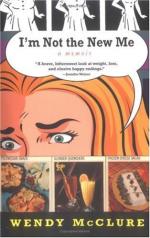[Illustration: ELLSWORTH IN 1860, WHEN HE WAS CAPTAIN OF THE CHICAGO COMPANY.
From a photograph loaned by Mr. H.H. Miller of Chicago, a member of the Chicago company, and taken July 2, 1860, by Colonel E.L. Brand of Chicago, a member of Ellsworth’s Chicago company, and afterwards in command of it. In the State House at Springfield, Illinois, is a portrait group of the members of the Ellsworth company, with a reproduction of this portrait of Ellsworth in the centre.]
In these circumstances of hunger and toil, he took charge of the company of cadets, which was falling to pieces from neglect. There was no sign in his bearing of the poverty and famine which were consuming him. He told them roundly that if they elected him their captain they did so with their eyes open; that he should enforce the strictest discipline, and make their company second to none in the United States. His laws were Draconic in their severity. He forbade his cadets from entering a drinking or gambling saloon or any other disreputable place under penalty of expulsion, publication of the offender’s name in the city papers, and forfeiture of uniform. He insisted on prompt obedience and unremitting drill. The company under his firm and inspiring command rapidly pulled itself together, and attracted all at once the notice and admiration of Chicago and northern Illinois. The young captain did not give up his law studies. He wrote and affixed to his desk a card which contained his own daily orders: “So aim to spend your time that at night, when looking back at the disposal of the day, you find no time misspent, no hour, no moment even, which has not resulted in some benefit, no action which had not a purpose in it. Mondays, Thursdays and Saturdays: Rise at 5 o’clock; 5 to 10, study; 10 to 1, copy; 1 to 4, business; 4 to 7, study; 7 to 8, exercise; 8 to 10, study. Tuesdays, Wednesdays, and Fridays: Rise at 6; 6 to 10, study; 10 to 1, business; 1 to 7, study and copy; 7 to 11, drill.”
Working faithfully as he did in the office, his whole heart was in his drill room. His fame as a fencer went abroad in the town, and he was challenged to a bout by the principal teacher of the art in Chicago. Ellsworth records the combat in his diary of May 24th: “This evening the fencer of whom I have heard so much came up to the armory to fence with me. He said to his pupils and several others that if I held to the low guard he would disarm me every time I raised my foil. He is a great gymnast, and I fully expected to be beaten. The result was: I disarmed him four times, hit him thirty times. He disarmed me once and hit me five times. At the touche-a-touche I touched him in two places at the same allonge, and threw his foil from him several feet. He was very angry, though he tried to conceal it.”
[Illustration: FRANK E. BROWNELL, WHO KILLED THE ASSASSIN OF COLONEL ELLSWORTH.
From a photograph in the Civil War collection of Mr. Robert Coster, by whose permission it is here reproduced.]




